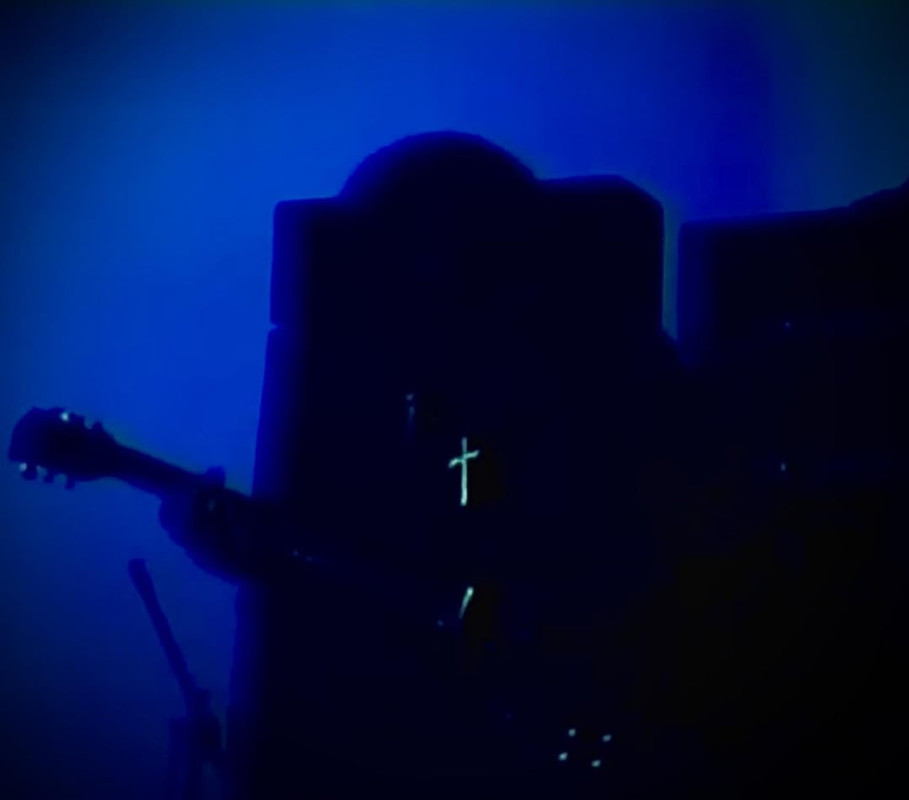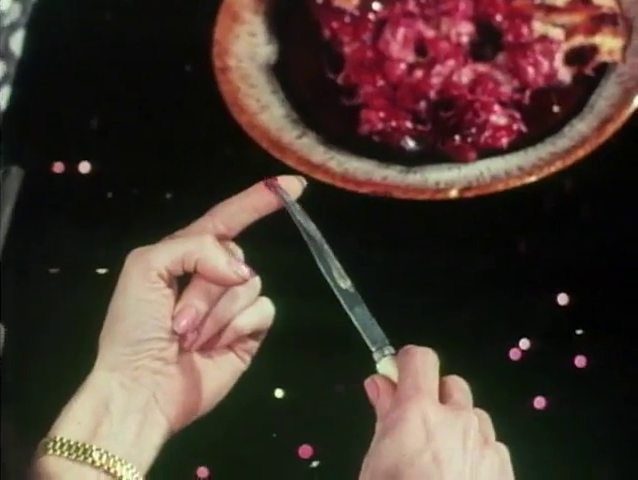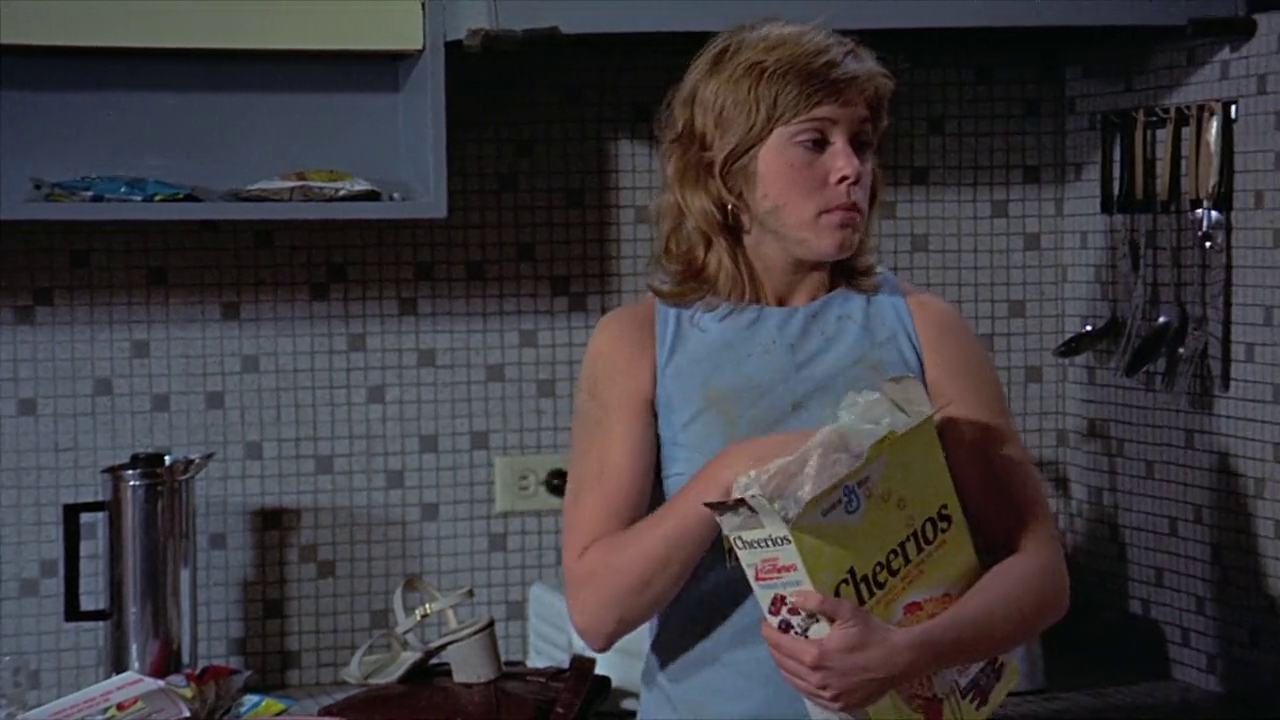“Heavy boots of lead
Fills his victims full of dread
Running as fast as they can
Iron Man lives again”Black Sabbath – Live in Paris (Jacques Bourton, 1970)
Dec
6
Metal & Beer Fest

Tony Iommi.
A heavy soundtrack for the Decibel Magazine Metal & Beer Fest: Denver.
– Black Sabbath, Iron Man (1970)
Despite its title, Live in Paris was filmed in Théâtre 140 in Brussels by Yorkshire Television and is Sabbath's first recorded live concert.
1970s
Gina [Stone Cold Revenge] (Denys Arcand, 1975)
Dec
5
فَاطِمَة بِنْت مُحَمَّد

Gina (Céline Lomez) waiting at an airport. DP: Alain Dostie.
A triumphant woman in commemoration of the martyrdom of Sayyida Fatimah al-Zahra
“Whoever dies for the country hasn't lived in vain. I, on the contrary, will live for the country because I'm not that stupid.”Touche pas à la femme blanche [Don't Touch the White Woman!] (Marco Ferreri, 1974)
Nov
23
potato chips

Two white Frenchmen – in a University of Columbia and a CIA sweatshirt respectively – comment on the “period piece” they're in. CIA man (Paolo Villaggio) stuffs his face with potato chips. DP: Étienne Becker.
– George A. Custer
Legacy of Satan (Gerard Damiano, 1972/74)
Oct
31
cherry pie

A lady cuts her left index finger with a knife. Nearby a plate with bloodred cherry pie. DP: João Fernandes.
Pensione paura [Hotel Fear] (Francesco Barilli, 1978)
Oct
18
wartime soup

Rosa (Leonora Fani) prepares soup for two of the hotel guests. DP: Gualtiero Manozzi.
La notte dei diavoli [The Night of the Devils] (Giorgio Ferroni, 1972)
Oct
12
soup

The two children (Cinzia De Carolis on the right) eat soup and giggle. Some parsley is stuck to the left child's mouth. DP: Manuel Berenguer.
The Animal (Walter Ungerer, 1976)
Sep
22

A man (Paul Ickovic) by himself at a table. The table setting suggests another person present. DP: Walter Ungerer.
A História do Olho [The Story of the Eye] (Ivan Cardoso, 1977)
Sep
10
leite

Simone (Claudia Ohana) about to dip her derrière in a bowl with milk. DP: Eduardo Viveiros.
Night of the Cobra Woman [Movini's Venom] (Andrew Meyer, 1972)
Sep
7
cereal

A blonde, mud-covered, boyish woman with shoulder-length dead hair (Joy Bang) in a grey kitchen eats Cheerios straight from the box. One of her shoes is on the kitchen counter. DP: Nonong Rasca.
Die Sage vom alten Hirten Xeudi und seinem Freund Reiman [The Legend of the Old Shepherd Xeudi and His Friend Reimann] (Hans-Jakob Siber, 1973)
Sep
3
potatoes

Gloomy potatoes and a small metal peeler on a wooden surface. DP: Hans-Jakob Siber.
Available to watch via the Zürcher Hochschule der Künste's media archive.